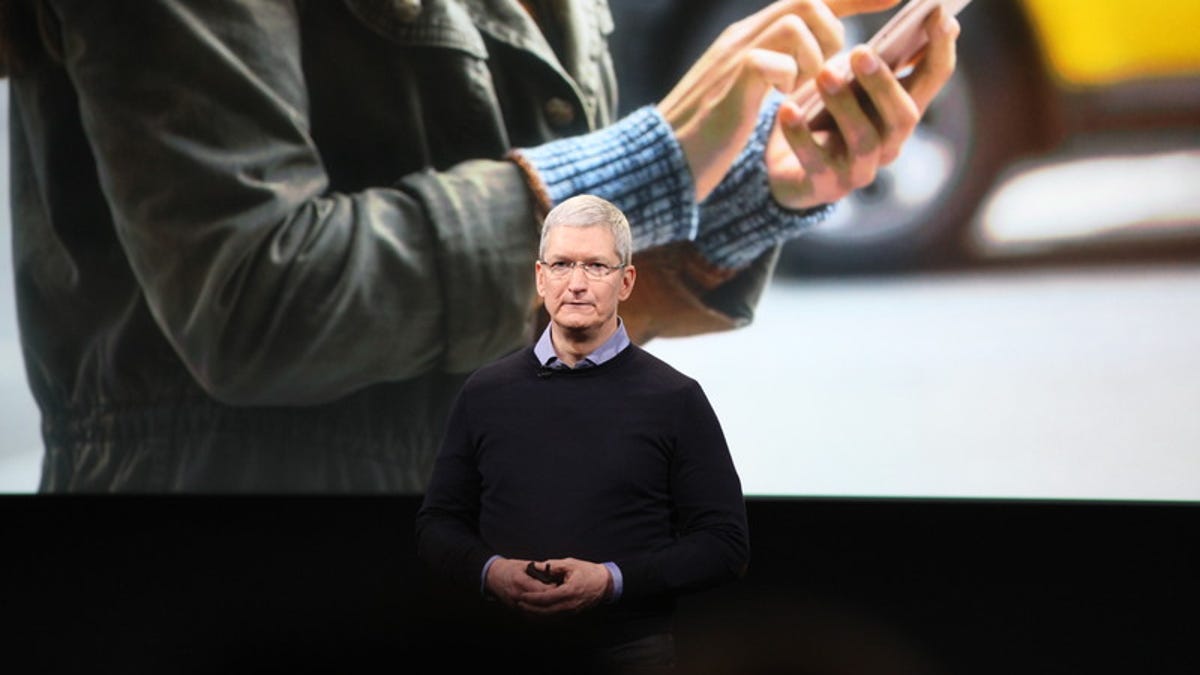At iPhone event, Tim Cook vows to protect your data
Privacy concerns at the heart of Apple's conflict with the FBI find their way into the company's new-product announcements Monday. Apple will face a tougher crowd in court on Tuesday.
Apple isn't in court yet, but CEO Tim Cook made arguments for security Monday from the company's new-products shindig.
Usually these events start with a recitation of cool product features and milestones. This time, Cook kicked things off by saying Apple never planned to face off with the government over its security, but that it isn't going to back down.
"This is an issue that impacts all of us, and we will not shrink from this responsibility," Cook said.
Apple is fighting the biggest privacy battle of its history, one that could have repercussions for the rest of the technology sector and for consumers in general. It may even turn into one of the most important legal battles over the future of both digital and US national security.
To recap in a nutshell: A February 16 court order requires that Apple build a custom version of its iOS software to help the FBI unlock an iPhone 5C tied to December's San Bernardino, California, mass shooting. Apple has argued that the request is unconstitutional and could undermine security in millions of iPhones. The US Justice Department says Apple is motivated more to protect its brand and will weaken the government's ability to fight criminals and terrorists.
On Monday, Cook spoke to a sympathetic crowd of Apple employees, executives and fans.
"I've been humbled and deeply grateful for the outpouring of support we've received from Americans all across the country," Cook said.
On Tuesday, Apple will face a more critical audience in a Riverside, California, courtroom, where it will argue that it shouldn't be forced to make its phones less secure.
Apple has offered encryption by default on its phones and tablets since 2014, meaning no information can be accessed without the device's passcode or a fingerprint. If an iPhone's drive is copied, the encrypted information will be unreadable.
Tune back to CNET on Tuesday for full coverage from Riverside.
See all the news from Apple's March 21 event.




